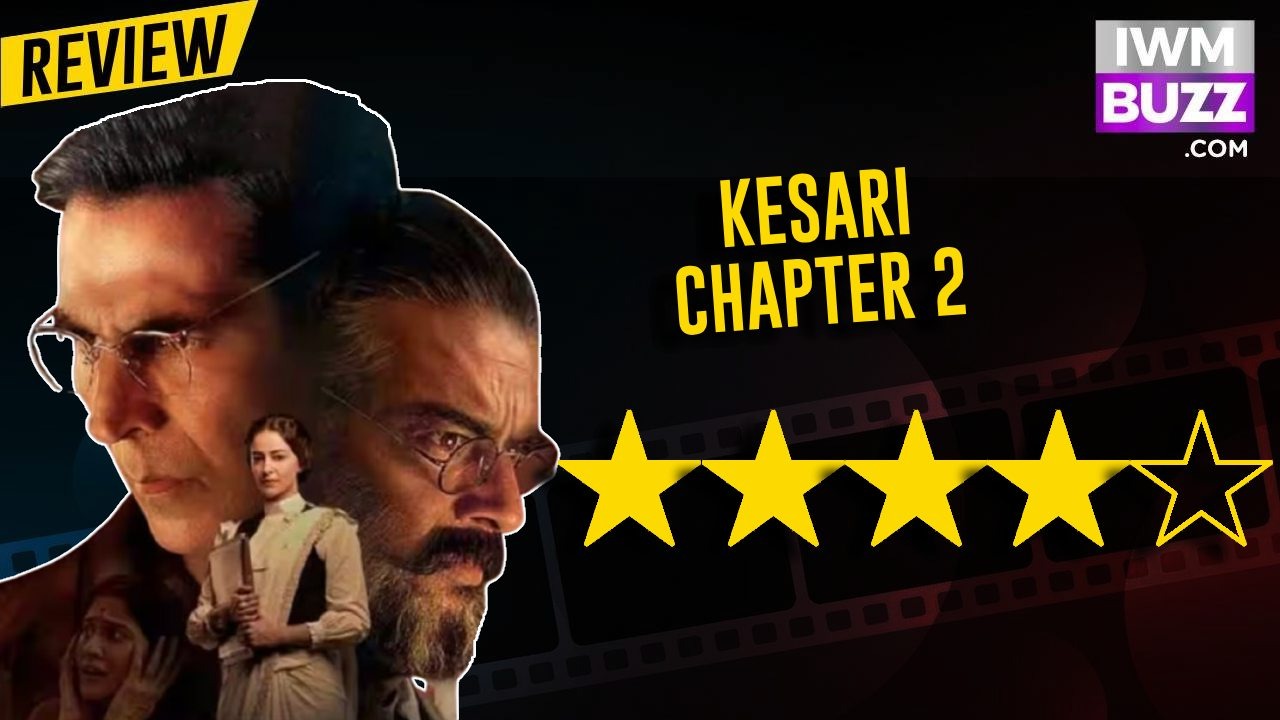Kesari Chapter 2: The Untold Story of Jallianwalla Bagh
Rating- ** (4/5)
Cast: Akshay Kumar, R. Madhavan, Ananya Panday, Amit Sial, Simon Paisley Day & more
Directed by: Karan Singh Tyagi
Produced by: Hiroo Yash Johar, Karan Johar, Aruna Bhatia, Adar Poonawalla, Apoorva Mehta, Amritpal Singh Bindra & Anand Tiwari
As the Jallianwalla Bagh massacre is nearing its end, Akshay Kumar makes a thunderous, hero-style entry that instantly cements C. Shankaran Nair’s presence and formidability. Loved by the English Empire—ironically enough—Nair’s introduction is less a whisper of resistance and more a full-blown proclamation of dignity. The film cleverly juxtaposes the haunting silence of the Jallianwala Bagh massacre with the grandeur of Nair’s knighthood ceremony, using muffled voices and solemn imagery as Nair is anointed Sir Shankaran Nair.
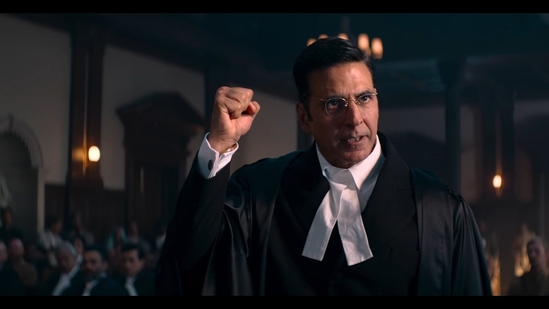
The contrast is bone-chilling: while one part of British India bleeds, another is being celebrated. This parallel hits harder than expected, setting a poignant tone early on.
And then, of course, there’s the crossword. Oh, the crossword. Shankaran Nair coolly solves a puzzle while his opposition is subjected to a rigorous examination. A small yet symbolic flex, it underlines his intellectual superiority and unbothered confidence—a beautiful cinematic device.
Vicky Kaushal’s voiceover declares, “British syahi se likhi hui zindagi kesari rang mein badalne vaali thi”, as he talks about how C. Shankaran Nair’s life is about to change. It’s a dialogue that crashes into your chest like a war cry.
What really takes the cake, though, is when the voiceover—courtesy of the ever-gripping Vicky Kaushal—declares, “British syahi se likhi hui zindagi kesari rang mein badalne vaali thi”, as he talks about how Nair’s life is about to change. It’s a dialogue that crashes into your chest like a war cry, as if foreshadowing the civil, legal, yet emotionally violent rebellion that’s about to follow. It’s delivered with poetic gravitas, and it stays with you.
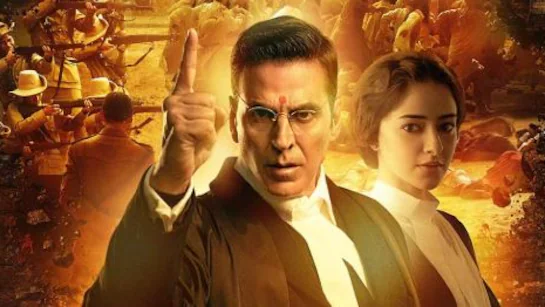
Sure, Kesari Chapter 2 isn’t without flaws. The background score at times tries a little too hard—pushing already intense scenes into an almost parodic overdrive. Some shoddy VFX moments peek through and momentarily disrupt the immersive experience. But honestly, these are cosmetic hiccups—fixable and forgivable in the grander scheme of what the film attempts and largely achieves.
Enter Ananya Panday’s Dilreet Gill, whose frame is like a whisper that turns into a roar. Immediately positioned as a woman navigating a man’s world, her presence is visually and symbolically powerful. That moment where she walks through a sea of dark suits, clad in pristine white—it’s a hauntingly beautiful image that sets a thematic tone for the gendered and racial discourse the film isn’t afraid to tiptoe around.
Yes, it does grate a little that her big cinematic moment—filing the case—still depends on a man’s execution. But then again, this is a period film. It reflects the times and doesn’t rewrite them. So while the feminism feels a little short-changed, it’s narratively justified.
The back-and-forth courtroom drama is zippy, engaging, and at times—deliciously theatrical. Neville McKinley (played with stiff-upper-lip venom) goes toe-to-toe with C. Shankaran Nair, and their verbal duels crackle with tension.
A little too much melodrama? Maybe. But in a courtroom epic driven by history, trauma, and nationalism, isn’t melodrama part of the package?
And then enters R. Madhavan, with yet another magnetic build-up—his character wrapped in mystery, anger, and personal loss. The slow reveal of his backstory makes him an even more intriguing figure. He’s not just an opposition lawyer; he’s a man wronged, carrying the silent rage of Bagh’s aftermath into the courtroom. It’s not quite villainy—it’s vengeance with a legal license.
What makes Kesari Chapter 2 tick is its insistence on focusing on the untold story of Jallianwala Bagh—specifically through the lens of legal resistance. It dials down the conventional massacre re-enactment and instead turns its attention to the trial that could’ve changed it all. The back-and-forth courtroom drama is zippy, engaging, and at times—deliciously theatrical. Neville McKinley (played with stiff-upper-lip venom) goes toe-to-toe with C. Shankaran Nair, and their verbal duels crackle with tension.
And yes, the inclusion of a “helpful Britisher” is not new. But the film manages to imbue this trope with enough freshness and sincerity that it doesn’t feel tokenistic. Director Karan Singh Tyagi knows his cinematic chessboard and plays with literal movements and performative nuances that land the message—shocking, hard-hitting, and emotionally explosive. The real win here is his commitment to mining the “unknown” parts of this often-retold saga, and in doing so, making them feel new again.
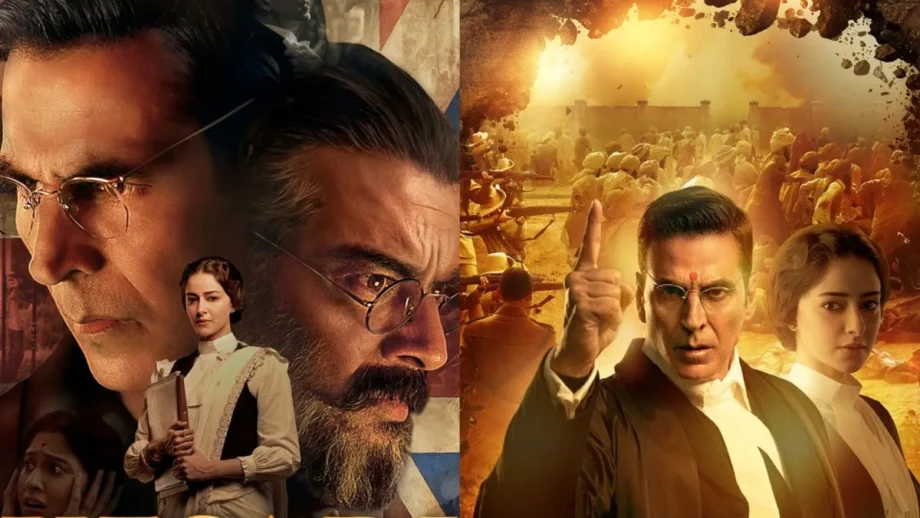
How often does a film revisit the Bagh story without descending into cliché? Rarely. But Kesari Chapter 2 manages to pull it off with a blend of intellectual rigor and commercial flair. Even the portrayal of General Reginald Dyer—played with cold-eyed precision by Simon Paisley Day—gets a textured backstory, which, believe it or not, adds another eerie layer to this long-standing villain of Indian memory. The rage scene where Dyer smashes furniture in frustration is goosebump-inducing—almost an echo of Captain Russell’s post-defeat meltdown in Lagaan. Cricket then. Legal battle now.
Despite knowing how it all ends, you find yourself riveted by the ‘how’ and the speculative ‘what ifs’. That’s the film’s real power—engaging you not with suspense, but with righteous fury and nuanced character arcs.
Karan Singh Tyagi proves he’s not here for paint-by-numbers storytelling. He amplifies the forgotten, excavates the buried, and weaves them into a tapestry so grand that you forget you’re watching a commercial film. Akshay Kumar, often criticized for his lack of restraint in recent roles, dials it down here. He plays Shankaran Nair with controlled intensity and undeniable charm. It’s almost as if the criticism has reached him—and rather than clap back, he’s quietly evolving.
Ananya Panday and R. Madhavan flank him superbly. Panday, visibly maturing with each role, is steadily chiseling out a space where she no longer needs the ‘surprise improvement’ asterisk beside her name. And Madhavan, who’s riding a phenomenal wave of negative roles, sinks his teeth into this character with vile brilliance. What could’ve easily been a moustache-twirling caricature ends up being a complex antagonist who, at times, even trumps the hero.
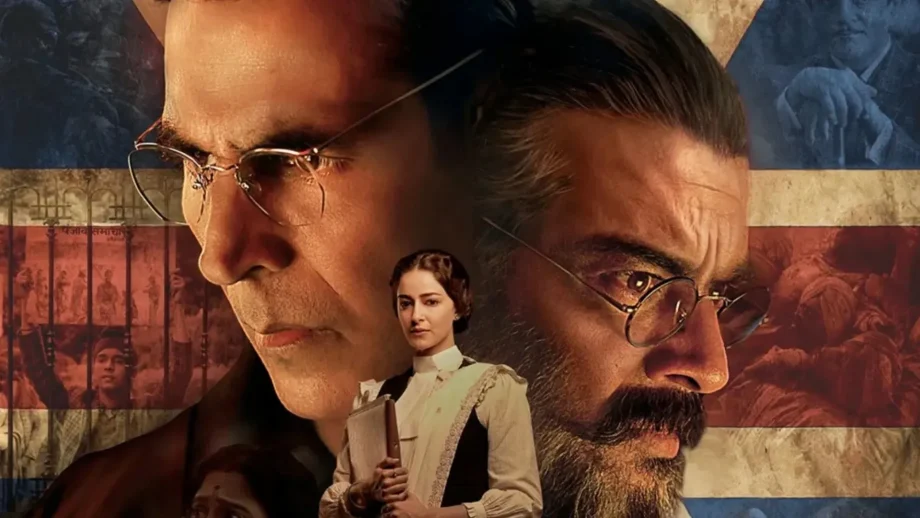
The most fascinating element of Kesari Chapter 2 is how it markets itself as the “untold story of Bagh”—and for once, that’s not just promotional fluff. Despite the avalanche of content that’s dealt with Jallianwala Bagh, this film carves out its own unique, compelling narrative route.
This is history doused in high drama, painted in blazing saffron, and told with a fervour that’s contagious. The rage, the surrealism, the courtroom crescendos—all of it comes together in a film that’s fantastical, emotional, and thoroughly engrossing. You walk out with your day pumped full of adrenaline and your patriotic heart swelling with pride.

